Let’s go on a Day Hike
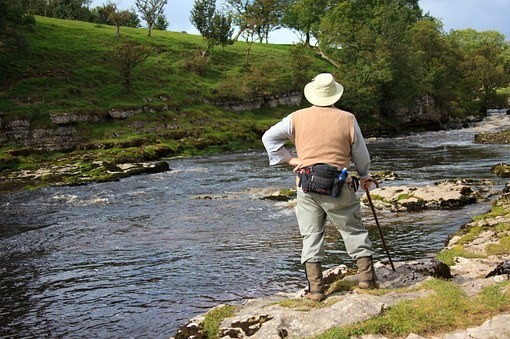
Hiking can be your gateway into the New Decade.
Today, hiking is more popular than it’s ever been. Young families see it as an easy and inexpensive means of getting the family out of doors, and the more hard-core crowd, use it to prep for their more intense adventures, such as backpacking and mountaineering.
Hiking is also an excellent “first date” idea, and I have used it for this very purpose, on many occasions. I was often pleasantly rewarded as a result.
What to Bring on A Day Hike has evolved into a science, marrying the lightest technology with the best of modern day creature comforts. Before you leave home to experience the wild outdoors, you would be wise to explore the answers to these, and similar questions.
Everyone can benefit from someone else’s experience, and later I will provide a detailed checklist of all the essential items I carry to be well prepared, for the trials and tribulations of Mother Nature.
Consider these questions before you get started
- Is this a family hike?
- Is this a hard-core challenge for a group of younger adventurers?
- What season of the year are we in?
- What type of terrain are we hiking into?
- What distance are will we be covering?
- Do we have a map of the area?
- Have we left a message with someone at home, telling them where we are going, and when we expect to return?
By asking yourself these questions, you can better determine the type, and amount of equipment, that you will need to make this a pleasant experience. Regardless of the group, the season, the terrain, or the distance you hope to cover, there is a list of essential items, that you should bring along, to ensure that your day-hiking experience is both enjoyable and safe.
Carrying a heavy backpack loaded with pounds and ounces of unnecessary equipment, is not going to be a pleasant experience for anyone.
Pack only the essentials and, keep it light!
Where are you going?
In the hope of ensuring that your day hike is an enjoyable experience for all concerned, a little bit of planning is never a bad idea. Knowing where you are going, and what the weather conditions will be like when you hike there, is very helpful for planning your day-hike.
Hiking in winter, in a wilderness environment, will require more clothing and equipment than a summer hike around your favorite lake.
These conditions will greatly affect the weight of your backpack. Walking in the snow, walking in snowshoes, or cross-country skiing, will increase your energy requirements. In winter, your food intakes will be much higher, and hot beverages can be an excellent idea when stopping to enjoy the scenery.
This does not mean lower water intakes, on the contrary, this increased workload will require more water and a practical solution to this important concern. A personal water filter is an excellent item to have in your pack.
Where will this hike take place? Will you be walking in the city, close to amenities, or will you be hiking in a Natural setting?
Do you have a map of the area you hope to cover? Maps are great for planning your rest stops, especially when in groups, and where the levels of physical fitness vary.
Part of the reason we hike is to enjoy this Natural beauty. Keep this in mind, and stop “to smell the roses” more often.
What to Bring on a Day Hike?
Before you get deterred from this activity, I want to stress the fact that you do not need all the latest and greatest equipment on the market to enjoy your day in the great outdoors.
Many of these items are already hanging out around your house and the ones that are missing are not always necessary to get started if you are a beginner.
I want you to focus on getting out and experiencing this day hike. As you gain experience you can add and subtract items, to your heart’s content.
It’s not important how you order the items on your list, but I strongly suggest that you get a small notebook and write a checklist of items that you bring along. Keep this list in your backpack. When you forget something, add it to your list, if you’re carrying things that you never use, maybe they can be left at home next time.
This list of 10 essentials for wilderness survival, is universally recognized by all outdoor enthusiasts.
Once you have these basic essentials, your list can be fine-tuned to your activity and needs.
1. Clothing
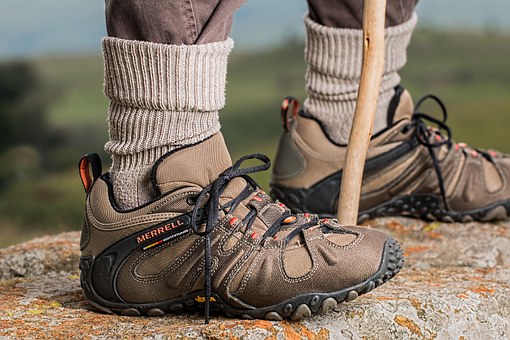
Always dress for the occasion. The clothing you wear will play a huge part in your hiking success. Proper footwear is always at the top of my list, and it should be at the top of your list as well. Your feet will be making contact with the ground all day and will also be carrying the pack on your back.
Summer or winter has a lot of say here. Is there a possibility that it could rain? Will it be hot or cold? Hats and gloves, are also part of this category. In the beginning, you do not need all the latest and greatest technical clothing to get out the door.
Remember that Hiking is simply walking, so get started first. On the trail, you can discuss what works best for you.
2. The Backpack
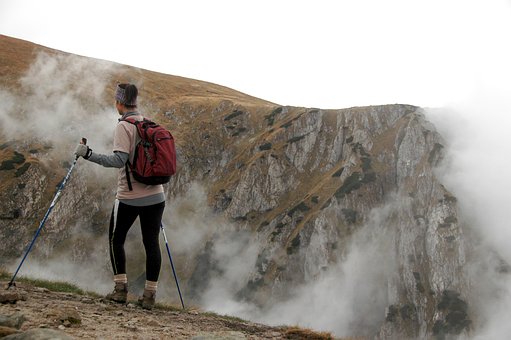
Almost everyone owns a backpack of sorts. We use them to carry everything we intend to use for the day. This concept begins early, usually in school, and is brought along into adulthood. Too often, we carry too much.
A day hike requires a tough, properly fitting backpack to carry and organize “your stuff”.
Even on a family hike, everyone should have a backpack to carry their share of the load.
This also applies to young children. Their backpacks should be very lightweight and age appropriate. As a parent, you may end up having to carry these backpacks yourself, if you make them too heavy.
3. Food and water
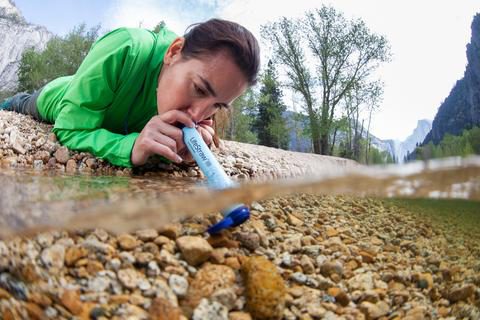
Day hikes do not require you to carry food for a week. Remember, this is a day-hike. You can survive for 3 weeks without food, so don’t carry so much food that you bring most of it back home. Snacks are important for young children, and you can just your needs as required.
Water on the other hand, is a must. It is even more important than food, and an even greater concern, if there is no water available, where you are going, except what you will be carrying.
A personal water filter, or a larger “group size” water filter, must be tops on your list, if you do not own one yet.
4. A Map and Compass
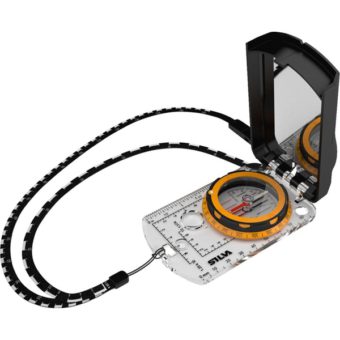
If you are hiking around a park, or in a city, a map is always a good thing to bring along. A map will display the geography of your area, and a city map will have the best places to visit highlighted. This can serve as a guide for planning your daily activities.
In the wilderness, a map and compass are essential items to have in your backpack. A topographic map displays all the terrain, the elevations, the rivers and valleys, and the peaks you may be attempting to summit.
5. A First Aid Kit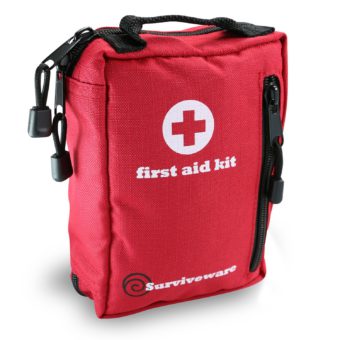
A First Aid Kit is like house or car insurance, annoying to purchase, and carry, but a real treasure to have, when you need it.
There are many lightweight kits available that are size appropriate for your group. Do not disregard this necessary piece of equipment. Learn basic First Aid. There is little value in carrying a First Aid Kit if you have no knowledge of how to use it.
CPR training is very useful, and is not heavy to carry.
6. A Knife or Multi-Tool
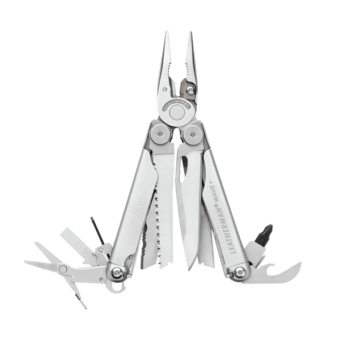
All hikers should carry a knife or multi-tool. You do not need a Bowie knife, or a Crocodile Dundee knife, to enjoy your day hike, however, do not ignore the many uses that a good knife or multi-tool will provide.
Knives have many uses, from food preparation to equipment repairs.
7. A Fire Starter
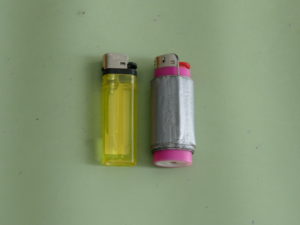
Firestarters include lighters, matches, magnesium blocks, and ferrocerium rods.
Any two of these is well prepared. Family hiking near cities and towns, do not normally require the use of fires, however, anyone planning and participating in wilderness hiking, must be able to start a fire in a variety of conditions.
8. A Headlamp or Flashlight
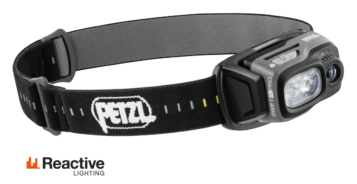
If you left in the dark, you’ve got this one covered.
If you haven’t, there is always a possibility that your hike may end in the late hours of the day. If you do not own a headlamp, I suggest you get one because headlamps free your hands for other things, including balance.
A flashlight is the next best option. Do not forget fresh batteries, and an extra set as a backup.
9. An Emergency Shelter

Of course, you’re not going to get lost! You’re only going up the side of a small mountain, at the most, it’s only a big hill. Right!
Every year, thousands of people get lost while hiking close to home, and every year, the ones who are well prepared have a better chance of getting out on their own, or surviving until help arrives.
Depending on your level of skill and preparation, a shelter may be the difference between surviving the night in comfort, or experiencing more unpleasant circumstances. There are many inexpensive and lightweight emergency shelters available to fit your needs and budget.
10. A Method of Signalling
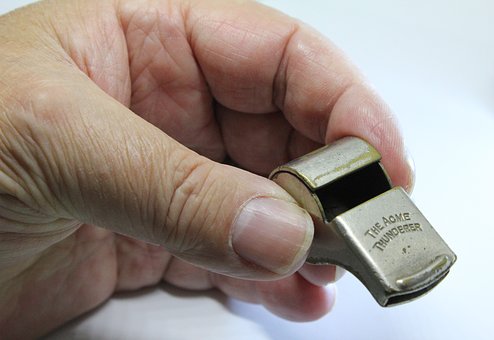
In the event that you do get lost, or that you cannot reach your vehicle on time, someone may be looking for you.
If you can signal your location, to your rescuers, you will be more than happy to see their smiling faces.
Whistles, a signalling mirror, a flashlight or a headlamp, a signal fire ( do not set the forest aflame ), or a large ORANGE garbage bag, are all excellent signalling devices.
Cellphones are not very helpfulful when no signal is available.
InReach, Spot, and Satellite Phones are the modern communications devices, but not everyone has access to them.
The fact is, that they need activation plans, and are expensive to purchase and maintain, for a large percent of the population.
While they are very handy to have in an emergency situation, they are not a must-have, to get out and experience the joys of day hiking.
This is the Checklist
- clothing, dress for the occasion, footwear, hats and gloves
- bring enough water, and a personal water filter
- carry an Emergency Shelter
- carry a First Aid Kit
- a knife or multi-tool
- a firestarter
- food or snacks
- a whistle to use as a signalling device
- a headlamp with extra batteries
- a map of the area, and a compass
Extras
sunglasses, sun screen, lip balm, personal medication, you get the idea …
This checklist is a starting point. Stick with the basics for starters. As you gain more miles and experience, you can add the major items that you are missing, and throw in a few creature comforts to improve your experience.
Get a small notebook and write things down.
We all forget. Having a written list to check makes it easy to bring everything you need and eliminate the ones you don’t.
Closing Thoughts
Remember that the title of this post is, What to Bring on a Day Hike.
It is not, “How much weight can I carry on my back to have a miserable day?”
Day Hiking is supposed to be fun. If you day-hike, and don’t return home happy and refreshed, then you are doing something wrong. Heading out for the day, to explore Nature, with family and friends, or even by yourself, is an experience that we are very fortunate to have available to us.
It should be as simple as spending the day, enjoying a pleasant walk in Nature, that’s it!
As a specie, we humans have made tremendous strides to improve our condition. We are also very good at complicating our lives and cancelling out this simplicity.
There is a fine balance between bringing all the creature comforts we can carry, and simply enjoying our day in Nature.
I’m not opposed to bringing any creature comfort that you choose to carry. Day-Hiking for some, is enjoying Nature on foot.
For others who are more energetic, it can mean logging as many miles as possible. Both scenarios are fine.
If you have any suggestions to contribute, or if you have any personal concerns, you can Contact Me, and I may be able to resolve your special issues.
Happy Trails, and enjoy your day-hike!
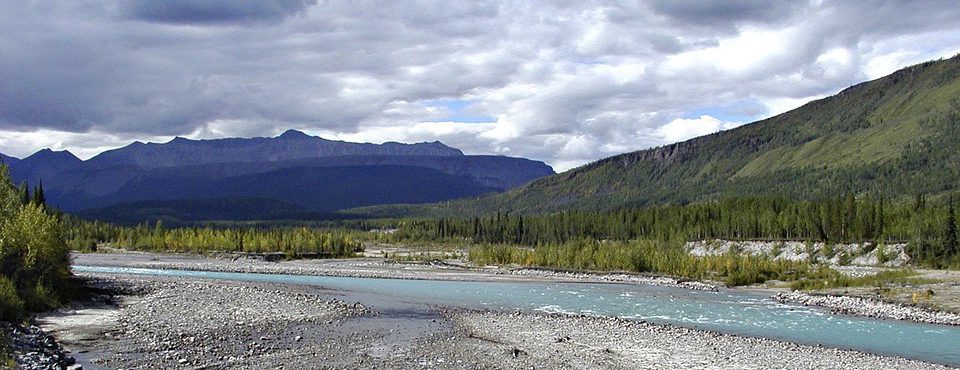
My family loves to go hiking as often as we possibly can, and we have definitely noticed it is important to be prepared, especially when you are hiking with young kids. I love your list as it is full of essentials that we try to bring on every hike, no matter what the length. Snacks and water are a big deal when going with children, especially young ones. I also always try to bring a pocket-knife as I find it comes in handy so much during a hike. Do you have any recommendations for a good hiking backpack? I just have a regular one that isn’t really that great for the outdoors. Thanks!
Hi Steve.
A good day-hiking backpack should not be too big, say 30 to 40 liters. Since your wife is also carrying one, you would have the “volume” issue covered.
As I have suggested previously, there are so many models on the market, that it’s almost impossible for me to find a backpack for you, from here.
However, it should have adjustable shoulder straps, an adjustable hip belt, and an adjustable sternum strap. Top loading, some side and front loading, are also to be considered.
They have to be fitted in person, and must fit snuggly, no side shifting accepted.
You may be wearing the right pack now. Get out as often as you can. Experience will show you what you need.
Thanks for the great question.
Paul
Many thanks to you for sharing such an excellent article with us .I love to do Day Hike .It gives me a lot of joy and I almost always do it .But your article this time gave me another pleasure because I needed to know in more detail what I needed to do in Day Hike, which I got from the article. Because in a new environment you have to face new challenges, so you have to keep up with the new things .So your article is very useful to me .The 10 things you need to provide in your article are very important, but two things I missed were the Multi-Tool and Fire Starter that I realized from your article. I would definitely like to thank you for such an article so helpful .
For everyone’s sake, here are 10 things to keep in mind for Day Hike.I will definitely follow your article when I go to Day Hike next. And I will not miss anything and will share my new experience with you soon.
Thanks, Shanta, for the kind words.
Hiking is a very good physical exercise, and it reduces work and school related stress, as well.
Being well prepared, lets you focus on your hiking.
I look forward to hearing about your next hike.
Don’t forget the photos!
Paul
Hey Paul, a very nice post you have here on the need to take to hiking and the necessary things to take along for a hiking adventure.
I think overtime, before I got married, hiking was a very important part of my life and I even prefer personal hiking to moving in groups and it really helped me as I was growing up to discover a lot of thing.
Hiking experiences for me are very interesting and fascinating as I got the time to think and work out a lot of things by myself.
Back then while I was growing up, my own hiking needed not much, all I take along with me is my hiking bag, my little diary (to record whatever new thing i discover), my wrist watch and my pair of glasses and still it was always fun.
Hi Carol,
Hiking is both fun and beneficial for your health.
Hiking can be practiced anywhere, at anytime. It is also an excellent way to sort out your thoughts.
Keep up your hiking activities.
Paul
Hi Paul,
I have always gone on hikes and nearly every time I forgot to bring important items with me. Your article on what to bring on a day hike is fantastic.
The knife and the fire starters are my most forgotten items, once we were in a very cold area and we needed fire but to my pride (sarcasm intended) I forgot to bring a fire starter. Your checklist will make my next hike preparation easier and better for sure.
Your Leatherman Knife recommendation comes perfect and the price for such a took isn’t that much high.
Thanks,
Jordan.
Good Day, Jordan.
Hiking is an activity or sport that can be a lot of fun when done right.
Hiking is simply a longer walk. Bringing the essentials, wearing proper footwear, and good backpack to carry your stuff is all that is needed. Don’t make your pack too heavy and enjoy the day.
Paul
Wow, i really enjoyed reading your article and thanks for all the explanation given.
For me hiking is like a treatment that keeps me healthy. This year I made a list of many places I want to explore. Reading your article, I realized that I forget the most important list, the list of 10 essentials for wilderness survival. So far I have never been on such a journey more than one day. As an amateur of this sport I can say that I have never thought of a method of signaling. Being very confident in myself because I know the places where I go, I didn’t feel the need for it. Reading your article even convinced me to create my list and not forget anything.
Thank you again.
Regards.
Being prepared is never a bad thing, Nimrodngy.
Having and maintaining a list ensures that you carry only the essentials to keep your backpack as light as possible.
This makes it easier to get around, and a lot less tiring.
Paul
hello there,thanks for this awesome article it would be of great help to the public as it has been of help to me.i really love hiking as it’s my favourite sport afte football and I must tell this are ideal equipment to bring on a day hike….what is really important that you must bring on a day hike or any hike is the first aid kit as you may run into injuries during the hike… please I need ideas of any special backpack that could carry all my hiking equipments and not give back ache?
Good Day, Dave.
I’m pleased to hear that you enjoy hiking.
The best way to find a suitable backpack for day hiking is to try it on, at the store, in person.
For day-hiking, I suggest a 30 to 40 liter pack. This volume is sufficient for a day hike. Get one that is not too complicated. Top loading, and maybe some front loading as well. A few outer pockets are useful.
There are so many models, that it’s almost impossible to pick one “for you”, from here.
You must own one now, so my best suggestion is to bring that one along, on a hike, and see what works for you, and what doesn’t. In this way, you can find the pack that best suits your needs.
It should have adjustable shoulder straps, adjustable hip belt, and an adjustable sternum strap. Go out and try a bunch first. A comfortable daypack is very important. If you’re not comfortable, and poorly equipped, you won’t enjoy your hikes, and consequently, you will not do very much hiking.
Hiking is also an excellent method of reducing stress.
Paul